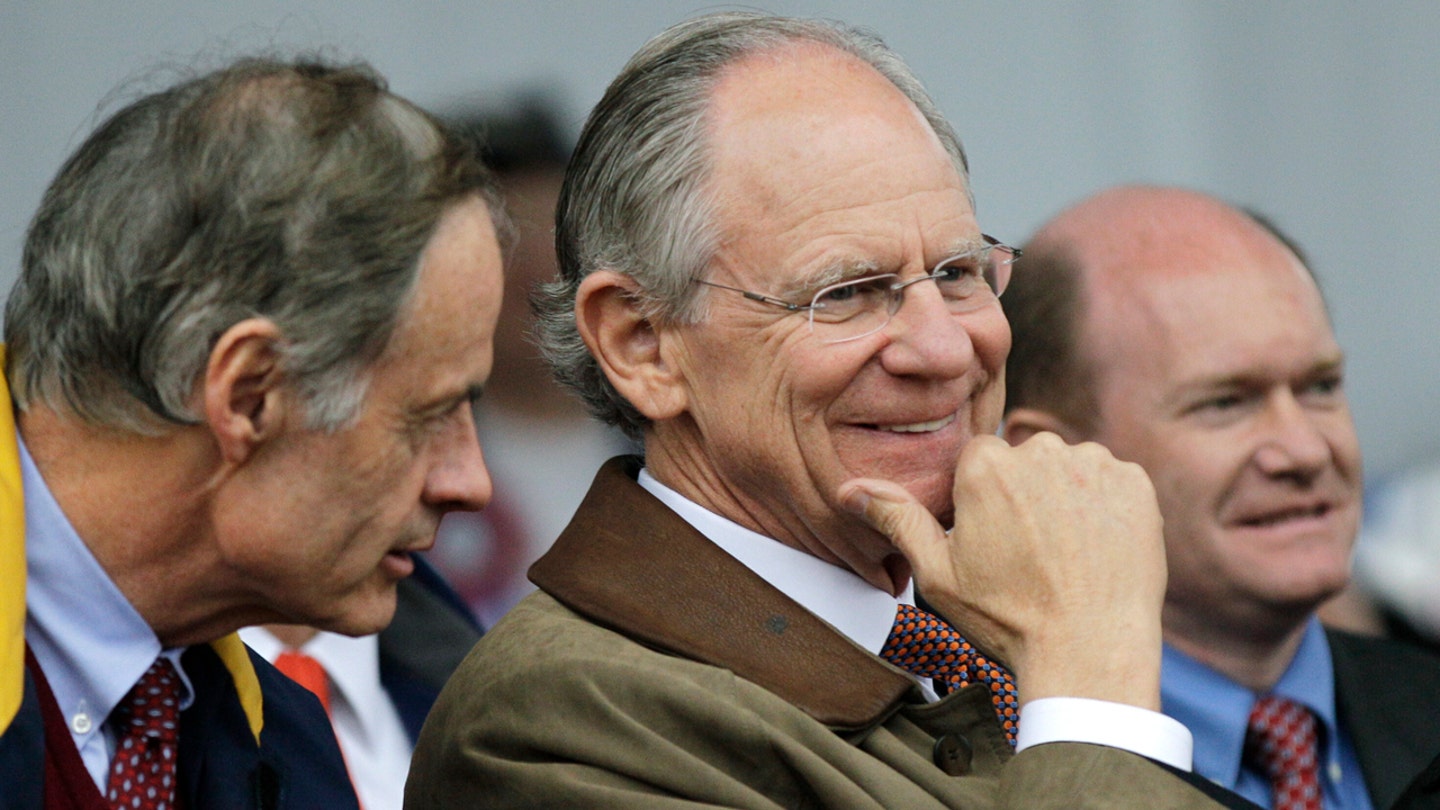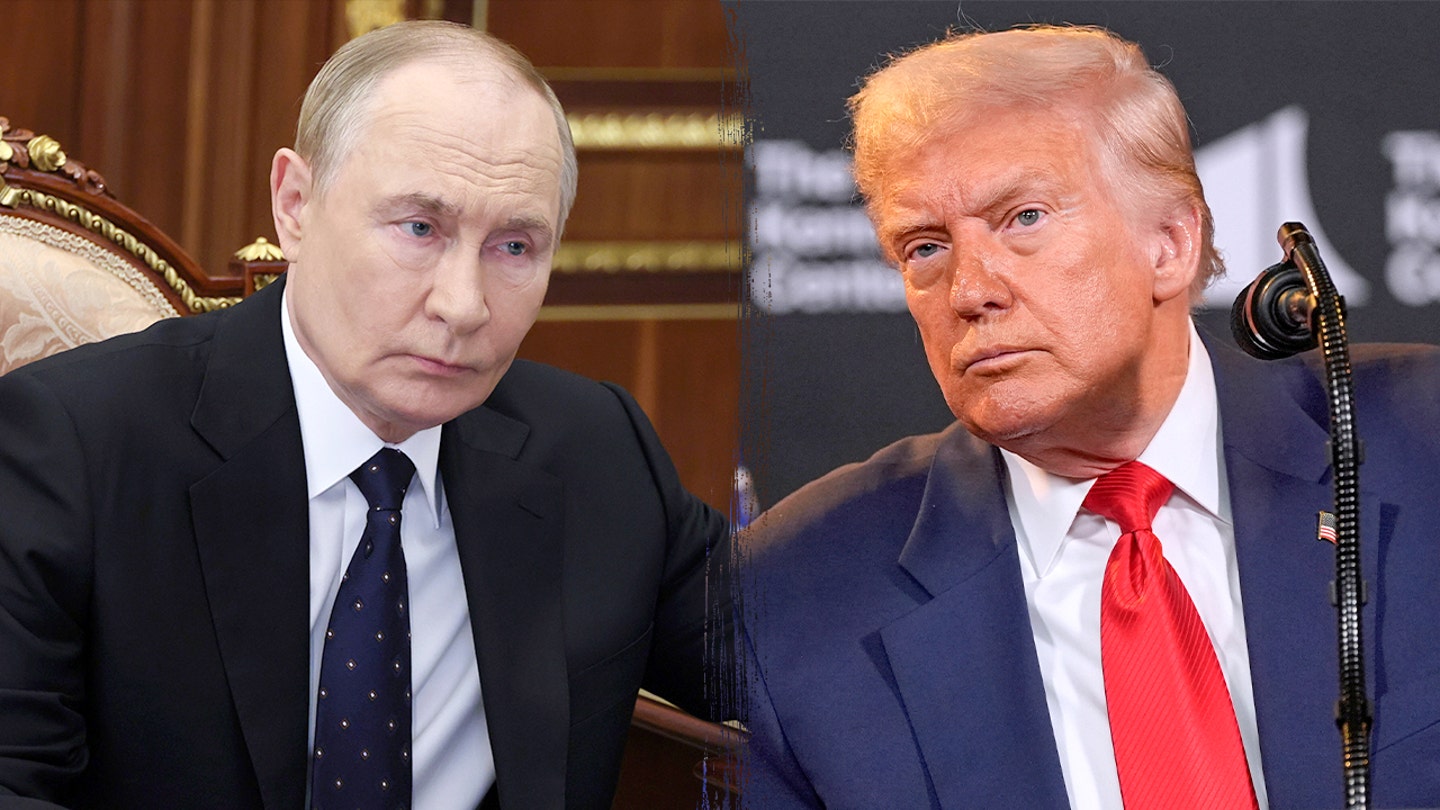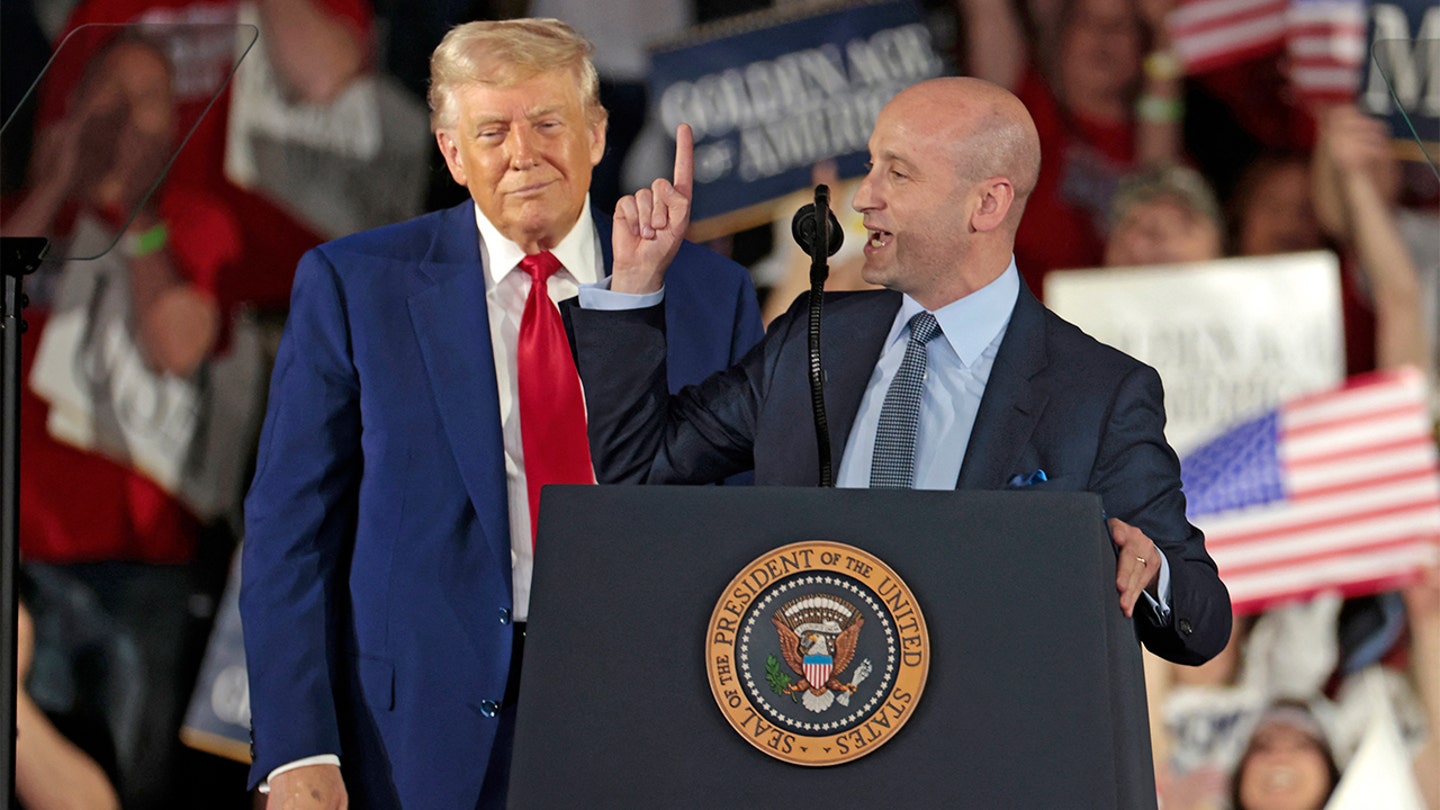
Exclusive: Oklahoma to begin controversial test to weed out ‘woke’ teacher applicants today
Entities mentioned:
- Ryan Walters: Control, Righteousness, Moral outrage
- PragerU: Influence, Righteousness, Power
- Oklahoma State Department of Education: Control, Loyalty, Righteousness
- Jonathan Zimmerman: Professional pride, Wariness, Curiosity
- Marissa Streit: Influence, Righteousness, Professional pride
- John Waldron: Indignation, Professional pride, Duty
- Donald Trump: Power, Influence, Recognition
Article Assessment:
Credibility Score: 65/100
Bias Rating: 55/100 (Center)
Sentiment Score: 30/100
Authoritarianism Risk: 70/100 (Authoritarian Tendencies)
Bias Analysis:
The article presents multiple viewpoints, including critics of the assessment, but gives more space to Walters' perspective. The framing suggests skepticism towards the assessment, but attempts to maintain a balanced approach.
Key metric: Education Quality and Teacher Retention
As a social scientist, I analyze that this controversial assessment for teacher applicants in Oklahoma represents a significant shift in the politicization of education. The use of PragerU, a conservative media company, to develop this assessment raises concerns about the objectivity and educational validity of the test. This move could potentially impact teacher recruitment and retention, especially for those from more liberal states, potentially exacerbating Oklahoma's existing teacher shortage. The assessment's focus on ideological alignment rather than pedagogical skills or subject matter expertise may have long-term implications for the quality of education in the state. Furthermore, this development signifies a broader trend of injecting partisan politics into educational policy, which could lead to increased polarization in the education system and potentially limit diverse perspectives in classrooms.

Rusted Qatari Plane Sitting On Blocks On White House Lawn
Entities mentioned:
- Leo: Curiosity, Enthusiasm, Self-respect
- The stars: Influence, Recognition, Obligation
Article Assessment:
Credibility Score: 30/100
Bias Rating: 50/100 (Center)
Sentiment Score: 60/100
Authoritarianism Risk: 20/100 (Strongly Democratic)
Bias Analysis:
The article maintains a neutral stance politically, focusing on humor rather than any partisan messaging. The satirical approach doesn't favor any particular ideological position, resulting in a centrist bias rating.
Key metric: Public Trust in Institutions
As a social scientist, I analyze that this satirical horoscope article, while humorous, could potentially impact public trust in institutions by mocking the perceived reliability of astrological predictions. The article playfully suggests that even cosmic forces can be forgetful or unreliable, which may lead readers to question other forms of guidance or expertise. However, the impact is likely minimal due to the clearly satirical nature of the content.

Jasmine Crockett proclaims she hates the Heritage Foundation ‘with everything in my in my body’
Entities mentioned:
- Jasmine Crockett: Moral outrage, Righteousness, Indignation
- The Heritage Foundation: Influence, Power, Control
- Al Sharpton: Influence, Recognition, Justice
- Ayanna Pressley: Unity, Justice, Influence
- Supreme Court: Justice, Power, Legacy
Article Assessment:
Credibility Score: 70/100
Bias Rating: 30/100 (Lean Left)
Sentiment Score: 25/100
Authoritarianism Risk: 35/100 (Generally Democratic)
Bias Analysis:
The article leans left due to its focus on a Democratic representative's criticism of a conservative organization. While it includes some context, it primarily presents the perspective of Rep. Crockett without significant counterbalance from The Heritage Foundation.
Key metric: Political Polarization Index
As a social scientist, I analyze that this article highlights the increasing political polarization in the United States. Rep. Crockett's strong language against The Heritage Foundation, a conservative think tank, exemplifies the growing divide between left and right ideologies. The discussion of Project 2025 and abortion legislation further underscores the contentious nature of current political discourse. The comparison of political strategy to emotional manipulation in car sales suggests a cynical view of how public opinion is shaped, which could contribute to decreased trust in political institutions and processes. This intense polarization can hinder bipartisan cooperation and effective governance, potentially impacting the overall functioning of democracy.

Spanberger and Earle-Sears still at odds over when to debate in Virginia governor’s race
Entities mentioned:
- Winsome Earle-Sears: Ambition, Competitive spirit, Recognition
- Abigail Spanberger: Ambition, Control, Professional pride
- CNN: Recognition, Influence, Professional pride
- Virginia Police Benevolent Association: Influence, Security, Professional pride
- Peyton Vogel: Loyalty, Professional pride, Influence
- Samson Signori: Loyalty, Control, Professional pride
Article Assessment:
Credibility Score: 75/100
Bias Rating: 55/100 (Center)
Sentiment Score: 45/100
Authoritarianism Risk: 25/100 (Generally Democratic)
Bias Analysis:
The article presents both candidates' perspectives relatively evenly, quoting spokespersons from each campaign. While it gives slightly more context for Earle-Sears' position, it maintains a generally balanced approach to reporting the debate situation.
Key metric: Voter Engagement and Participation
As a social scientist, I analyze that this article highlights the strategic maneuvering in the Virginia governor's race, particularly regarding debate participation. The disagreement over debate venues and formats reflects each campaign's attempt to control the narrative and gain a perceived advantage. This conflict could impact voter engagement by potentially limiting direct comparisons between candidates and reducing opportunities for voters to assess them side-by-side. The involvement of CNN, a national network, versus local broadcasters also speaks to tensions between national and local interests in state-level politics. The police association's split endorsements suggest a complex political landscape that doesn't cleanly align with party lines on all issues. Overall, this situation may lead to decreased voter engagement if debates are limited or seen as inaccessible, potentially affecting turnout and informed decision-making in the election.

Mike Castle, Delaware's last Republican governor and congressman, dead at 86
Entities mentioned:
- Mike Castle: Duty, Public service, Legacy
- Delaware Republican Party: Loyalty, Recognition, Unity
- Joe Biden: Ambition, Power, Legacy
- Gene Truono: Respect, Duty, Unity
- Matt Meyer: Duty, Recognition, Unity
Article Assessment:
Credibility Score: 85/100
Bias Rating: 45/100 (Center)
Sentiment Score: 60/100
Authoritarianism Risk: 20/100 (Strongly Democratic)
Bias Analysis:
The article presents a balanced view of Castle's career, highlighting achievements without overt partisan framing. It includes perspectives from both Republican and Democratic sources, maintaining a centrist approach to reporting.
Key metric: Political Polarization Index
As a social scientist, I analyze that this article highlights the career of Mike Castle, a moderate Republican known for bipartisan work and fiscal conservatism. His approach to politics, characterized by centrism and willingness to work across party lines, stands in contrast to the increasing polarization in American politics. Castle's legacy, particularly his work on commemorative coin programs and education reform, demonstrates how politicians can achieve lasting impact through collaborative efforts. The article's focus on Castle's moderate stance and successful career until his 2010 primary loss may indicate a shift in the political landscape towards more partisan positions, potentially impacting the Political Polarization Index by reminding readers of a less divisive political era.

There's a reason why Putin decided to invade Ukraine under Joe Biden's presidency, says Katie Pavlich
Entities mentioned:
- Vladimir Putin: Power, Control, Ambition
- Joe Biden: Duty, Influence, Security
- Katie Pavlich: Influence, Recognition, Competitive spirit
- Miranda Devine: Influence, Recognition, Competitive spirit
- Donald Trump: Power, Recognition, Influence
- Fox News: Influence, Competitive spirit, Recognition
Article Assessment:
Credibility Score: 45/100
Bias Rating: 75/100 (Lean Right)
Sentiment Score: 35/100
Authoritarianism Risk: 40/100 (Generally Democratic)
Bias Analysis:
The article leans right due to its source (Fox News) and framing that favors Trump's approach over Biden's. The commentary from conservative contributors without balancing perspectives indicates a right-leaning bias.
Key metric: International Relations and Diplomacy
As a social scientist, I analyze that this article suggests a perceived shift in international power dynamics and diplomatic approach between the Trump and Biden administrations, particularly concerning Russia. The commentary implies that Putin's decision to invade Ukraine during Biden's presidency is not coincidental, hinting at a perceived weakness or change in U.S. foreign policy. The suggestion that Trump could end the war indicates a belief in his different approach to international relations. This framing may influence public perception of U.S. leadership and its global standing, potentially impacting diplomatic efforts and alliances.

Ex-GOP National spox rips commentary rooting against Ukraine-Russia peace deal: 'Absolute shame'
Entities mentioned:
- GOP National spokesperson: Moral outrage, Duty, Self-respect
- I.C.E.: Duty, Security, Control
- Gavin Newsom: Ambition, Power, Influence
- Donald Trump: Power, Recognition, Influence
- Vladimir Putin: Power, Control, Influence
- Zohran Mamdani: Ambition, Moral outrage, Recognition
Article Assessment:
Credibility Score: 55/100
Bias Rating: 55/100 (Center)
Sentiment Score: 35/100
Authoritarianism Risk: 45/100 (Mixed/Neutral)
Bias Analysis:
The article presents a mix of perspectives, including criticism of both left and right-leaning figures. However, the framing of issues and choice of topics suggests a slight centrist tilt, balancing different political viewpoints.
Key metric: Political Polarization Index
As a social scientist, I analyze that this article touches on multiple contentious political issues, including immigration enforcement, international diplomacy, urban crime, and political criticism. The mention of an I.C.E. raid at a Gavin Newsom event suggests ongoing tension between federal immigration policies and sanctuary cities. The upcoming Trump-Putin summit indicates potential shifts in U.S.-Russia relations, while the inclusion of Washington D.C. crime data points to domestic security concerns. The criticism of Trump by a NYC mayoral candidate further highlights the polarized political climate. These elements collectively contribute to increased political polarization, as they represent conflicting viewpoints on key national issues and international relations.

Putin praises Trump’s ‘sincere’ peace efforts, signals possible US-Russia nuclear deal
Entities mentioned:
- Vladimir Putin: Power, Influence, Control
- Donald Trump: Legacy, Recognition, Ambition
- Volodymyr Zelenskyy: Self-preservation, Unity, Determination
- Keir Starmer: Duty, Influence, Unity
- Friedrich Merz: Duty, Influence, Unity
- Emmanuel Macron: Influence, Unity, Leadership
- JD Vance: Duty, Influence, Professional pride
- Gen. Keith Kellogg: Duty, Professional pride, Security
Article Assessment:
Credibility Score: 75/100
Bias Rating: 45/100 (Center)
Sentiment Score: 55/100
Authoritarianism Risk: 35/100 (Generally Democratic)
Bias Analysis:
The article presents multiple perspectives, including those of Russia, the US, and Ukraine, indicating an attempt at balanced reporting. However, there's a slight emphasis on Western viewpoints and actions, which may suggest a subtle Western-centric framing.
Key metric: International Relations and Diplomacy
As a social scientist, I analyze that this article highlights a potential shift in US-Russia relations, centered around nuclear arms control and the ongoing conflict in Ukraine. The upcoming summit between Trump and Putin represents a critical juncture in international diplomacy, with potential ramifications for global security. Putin's praise of US efforts and hints at a possible nuclear deal suggest a strategic positioning ahead of the talks. However, Zelenskyy's skepticism indicates ongoing tensions and complexities in resolving the Ukraine conflict. The involvement of other world leaders and the 'Coalition of the Willing' underscores the global significance of these negotiations. The article suggests a delicate balance of power dynamics, with both Trump and Putin potentially seeking diplomatic victories for domestic and international gain.

Social Security is 90 years old. We are making it smarter, better, faster under Trump
Entities mentioned:
- Donald Trump: Loyalty, Power, Legacy
- Social Security Administration: Efficiency, Duty, Professional pride
- Commissioner: Ambition, Determination, Recognition
Article Assessment:
Credibility Score: 55/100
Bias Rating: 75/100 (Lean Right)
Sentiment Score: 85/100
Authoritarianism Risk: 35/100 (Generally Democratic)
Bias Analysis:
The article leans right, consistently praising Trump administration efforts without presenting alternative viewpoints or criticisms. The language used is overwhelmingly positive towards current leadership, indicating a clear partisan slant.
Key metric: Social Security System Efficiency
As a social scientist, I analyze that this article presents a highly positive view of the Social Security Administration's progress under the Trump administration. The Commissioner highlights various improvements in service delivery, wait times, and technological advancements. The article emphasizes modernization efforts and a commitment to future generations, suggesting a focus on long-term sustainability of the Social Security system. However, the overwhelmingly positive tone and lack of mention of challenges or criticisms raises questions about the balanced nature of the information presented.

EXCLUSIVE: Trump-aligned legal group files FOIA request for DC crime data, citing alleged manipulation
Entities mentioned:
- America First Legal Foundation (AFL): Justice, Influence, Righteousness
- Stephen Miller: Loyalty, Power, Influence
- Donald Trump: Control, Power, Recognition
- D.C. Metropolitan Police Department: Professional pride, Duty, Self-preservation
- Michael Pulliam: Self-preservation, Anxiety, Fear
- Muriel Bowser: Duty, Self-respect, Professional pride
Article Assessment:
Credibility Score: 65/100
Bias Rating: 70/100 (Lean Right)
Sentiment Score: 30/100
Authoritarianism Risk: 65/100 (Authoritarian Tendencies)
Bias Analysis:
The article leans right, evidenced by its focus on Trump-aligned sources and framing that favors the administration's perspective. While it includes some opposing views, the narrative predominantly supports the Trump administration's claims about D.C. crime.
Key metric: Violent Crime Rate
As a social scientist, I analyze that this article highlights a contentious issue surrounding crime statistics in Washington D.C., with potential implications for public safety perceptions and policy decisions. The Trump-aligned AFL's FOIA request and investigation into alleged manipulation of crime data directly challenges the credibility of local law enforcement and city officials. This conflict between federal and local authorities over crime reporting accuracy could impact public trust in institutions and influence future crime prevention strategies. The use of crime statistics as a political tool raises questions about the objectivity of data interpretation and its potential misuse for partisan gain. The federalization of D.C.'s police force by Trump's executive order represents a significant shift in local governance and could set a precedent for future federal interventions in local matters, potentially altering the balance of power between federal and local authorities.